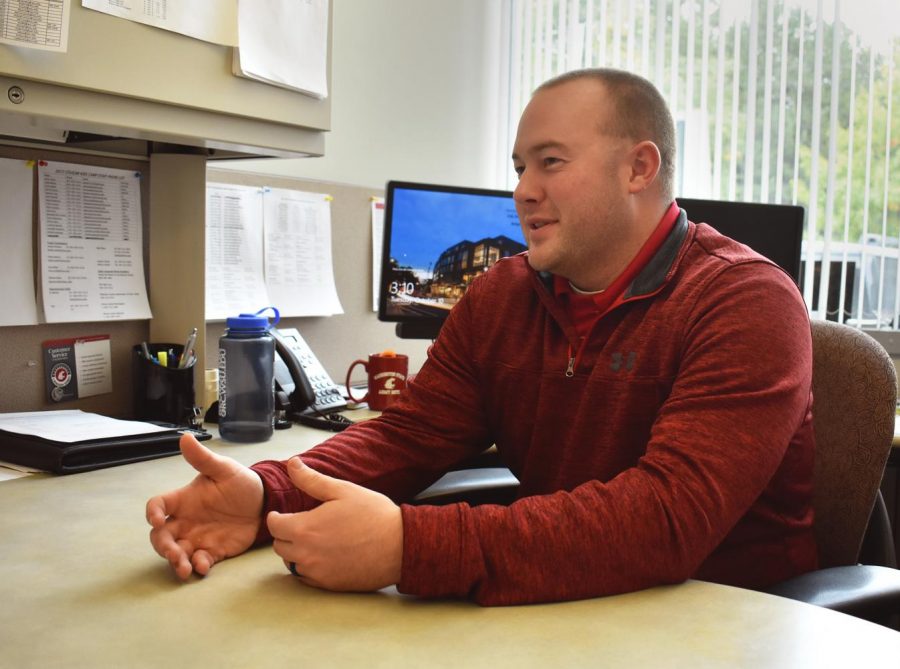UREC works to increase participation
SRC tries different strategies to engage more students
KEISHA BROKAW | The Daily Evergreen
DJ Mackie explains UREC’s efforts to meet students’ high expectations.
October 12, 2017
WSU University Recreation has been working to increase student participation in intramural sports on campus. The widespread decline in participation in intramural and recreational sports has created a problem for university programs across the country.
DJ Mackie, the coordinator of competitive sports and youth programs at UREC, wrote his master’s thesis on the subject of constraints to participation in intramural sports. He has been involved in getting students interested in intramurals again.
Mackie said participation in intramurals has been decreasing for a while now. With so many other programs developing and evolving, students are more involved than ever before. Many students are no longer willing to dedicate an hour of their week for a month to intramurals because they have other priorities, he said.
However, Mackie and others have not given up on intramural sports as a form of campus recreation. Over the last couple years, UREC has worked to implement a variety of programs and methods to bring interest back to recreational sport.
“We’re just trying to promote that it’s something any student can take part in,” Mackie said.
One big influence was the change to an intramural sports pass. Instead of charging $8 per sport, UREC now charges $20 for a semester pass. The pass allows students to play in as many sports leagues as they want for a one-time fee.
UREC has started getting creative with types of events they put on, Mackie said. The Student Recreation Center hosted a five-person team laser tag tournament in September. The SRC will host an inner tube water polo tournament Dec. 1. Tournaments are a good way to get students involved since it is only a one day commitment, Mackie said.
Part of UREC’s strategy to bolster participation includes reaching out to groups already formed on campus. It can be difficult to attract individuals to play, Mackie said. Students are more willing to play if they’ve already established themselves with a group. UREC created residence hall leagues and Greek leagues to gain more group participation.
UREC also offers leagues with a wide variety of competition levels, from beginner to elite. There are avenues available for all skill sets, Mackie said.
“It doesn’t require experience to play intramural sports,” Mackie said. “You can come out and try soccer or flag football in a beginner’s league, and participate with other people who are just learning it, and get that experience and fun without worrying about playing at a high level.”
Additionally, UREC has implemented a new officiating program to alleviate past frustrations for participants. Individuals may elect to play pickup sports to avoid dealing with officials — something they hope to change, Mackie said.
Tim Lewis, coordinator for UREC intramural sports officials’ development, said a lot of feedback from focus groups points to participant frustration with officials.
Lewis has led the charge to develop a new program to meet the high expectations of participants, but said it is not easy when they often only have three weeks to train officials. Teamwork is typically an overlooked aspect of officiating, and is something Lewis said he wants to stress in the new program.
“We want the best crew of officials possible, rather than the best three officials,” Lewis said.
Officials have a hand in creating a positive environment for participants, Lewis said. A better officiating program can help mitigate the decline of participation in intramurals as a whole.









